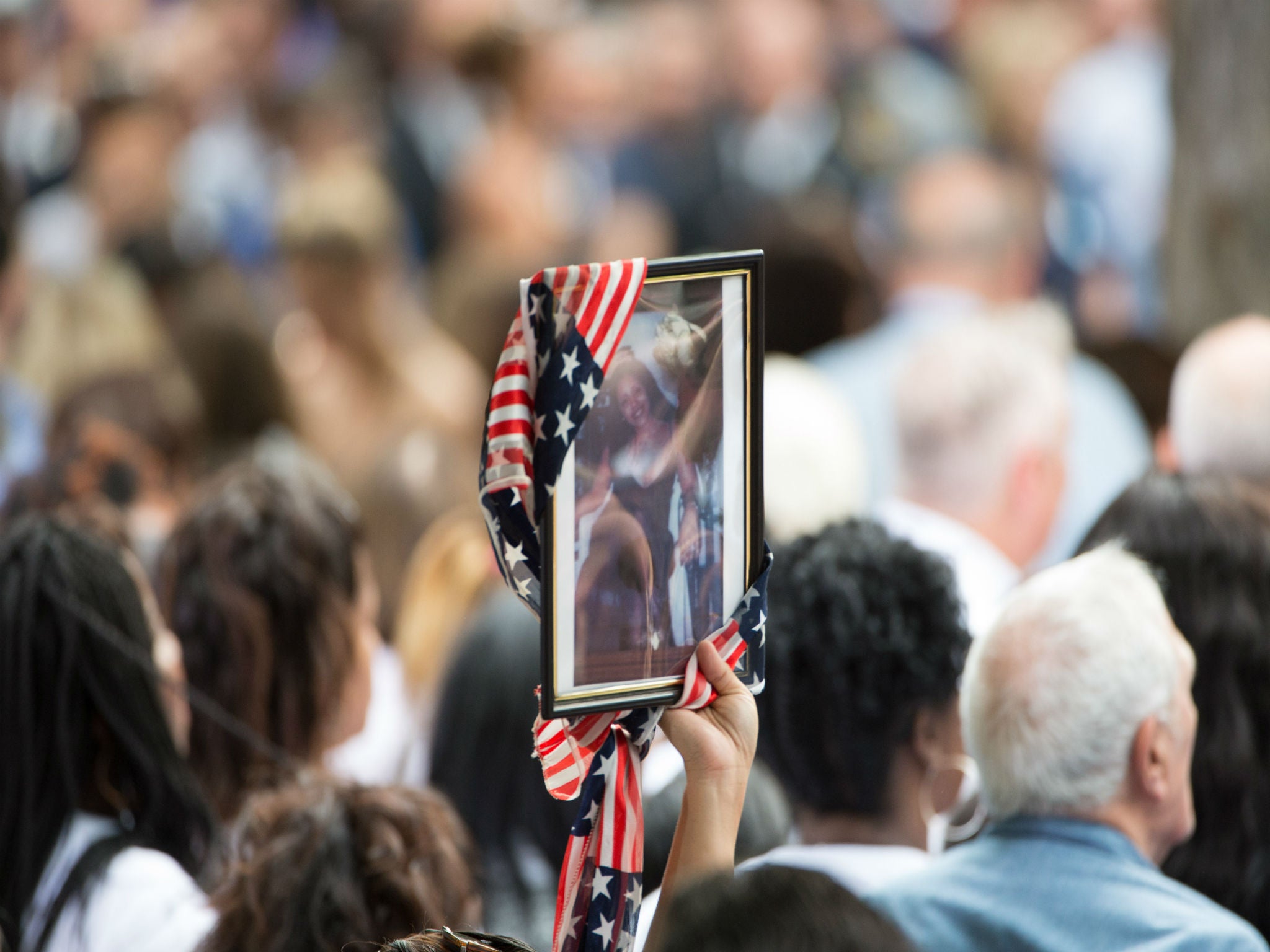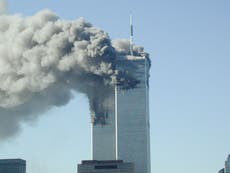Could the endless memorials for 9/11 victims actually be doing more harm than good?
At a time when anti-Muslim rhetoric is on the march in America, thanks in part to Trump’s fact-evading campaigning style, it is important to consider whether the institutionalised memorialisation of the 9/11 attacks (or the July 2005 bombings here, or the Paris attacks last year, among others) is appropriate


To the beleaguered residents of Aleppo, or the refugees of war in camps from Lebanon to Calais, the stirring commemorations on the 15th anniversary of 9/11 must seem a strange spectacle. While many in the West would prefer to forget about barrel bombs and the deaths of some 400,000 Syrians, remembering the victims of the terrorist attacks on America in September 2001 is a point of honour – especially in the US.
The presidential candidates Donald Trump and Hillary Clinton naturally attended a ceremony at Ground Zero in New York (with Clinton’s health the surprise talking point afterwards). Six periods of silence were observed, four to mark the times that hijacked aircraft were deliberately crashed and two to commemorate the collapse of the World Trade Centre towers. The innocence of those who died on 9/11 and the heroism of emergency services receive equal focus, while grief is accompanied by a note of defiance: terrorists may have taken almost 3,000 lives on that day but they could not destroy America’s soul. As President Obama noted in his weekly radio address this week: “We’re still the America of heroes who ran into harm’s way; of ordinary folks who took down the hijackers; of families who turned their pain into hope.”
At a time when anti-Muslim rhetoric is on the march in America, thanks in part to Trump’s fact-evading campaigning style, it is important to consider whether the institutionalised memorialisation of the 9/11 attacks (or the July 2005 bombings here, or the Paris attacks last year, among others) is appropriate. Can it, far from creating unity, in fact spawn further division? After all, Islamophobic hate crime has increased five-fold in the US in the years after 2001. In Britain too, anti-Muslim sentiment is running at record levels: in 2015 a report by Tell MAMA showed an increase of 200 per cent in Islamophobic incidents.
It was inevitable perhaps that relations between Muslims and non-Muslims should have become strained. Atrocities were committed by men in the name of Islam and were intended to be an attack on Western values. Subsequent acts of terrorism have shown that others continue to share their world view and are intent on killing civilians to prove their commitment to the cause.
Even so, the way in which 9/11 is commemorated can create an overly simplistic version of that narrative, one in which Muslims are extremists, killers and in every respect “other”. The fact that decent Muslim Americans were murdered in the Twin Towers is subsumed by a black and white version of events in which there is little room for nuance. Memorials to those who died are as much monuments to the might of the USA as they are tributes to individual victims.
None of this is to suggest we should forget the past, ignore the pain caused by terrorism or disbar grief. But – and this applies especially to the media – we must take care to place singular atrocities in their fuller context, seeking to understand their causes and their consequences. We owe that much to the people of Iraq, Afghanistan, Syria and elsewhere, many of who may ponder how their lives might have been different had four aeroplanes not been used as weapons of mass destruction a decade and a half ago.
Nor is this a plea for a dry, academic approach. Personal experience remains vital in understanding both the human impact of horrors like 9/11, and the broader fall-out: moreover the feelings of those directly involved are often more subtle and complex than those who see a terror attack only as a justification for fear-mongering and hate.
Indeed, the value of human voices in aiding our collective memory ought to be all the more obvious at a time when a growing number of Europeans and Americans, far from standing up for the core values of liberal democracy and social enlightenment, appear set on a course towards small-minded nationalism. And sure enough, there are ever fewer men and women still alive who witnessed and can recall the rise of fascism in the 1920s and ’30s; who saw the crushing of personal liberty by dictators, and the scapegoating of whole races and religions. Their testimony resonated so strongly for so long: as the generations pass, their evidence is more easily silenced.
9/11 changed the world. We must neither underestimate its impact, nor simplify its symbolism. Nor, in a rush to remember this tragedy from our recent past, must we forget the lessons that history’s longer view can offer us.


Join our commenting forum
Join thought-provoking conversations, follow other Independent readers and see their replies